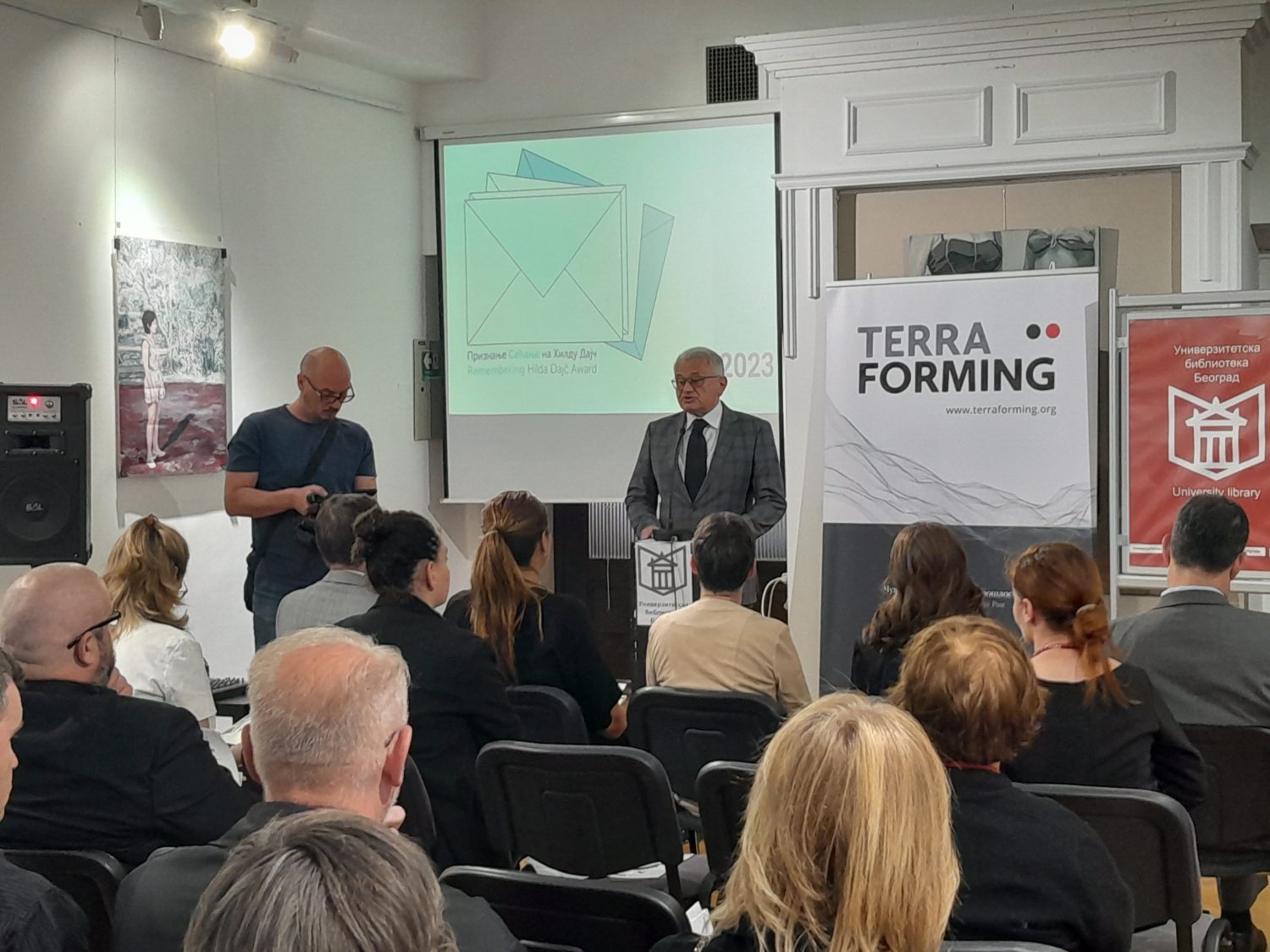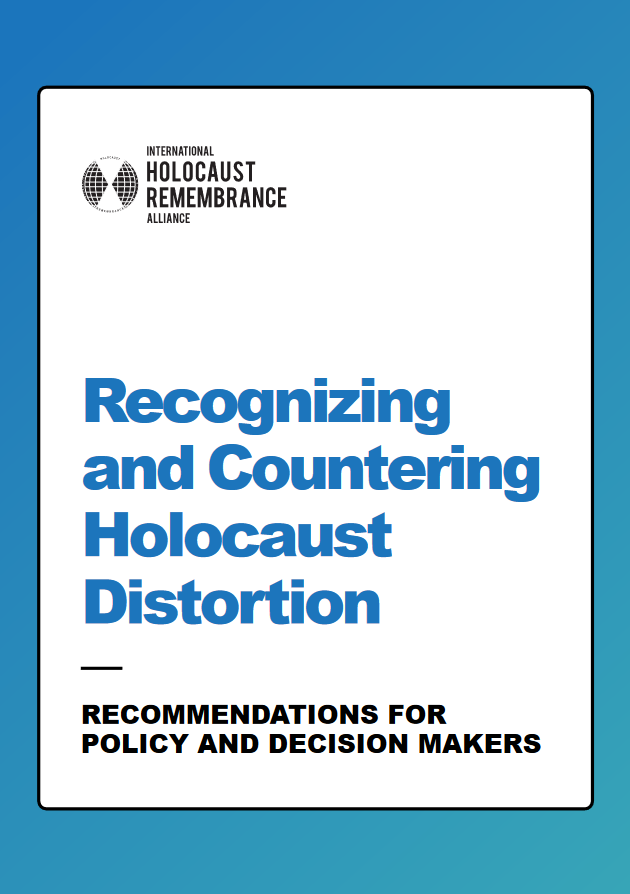
Holocaust Remembrance: “Safeguarding is key to carrying memories forward”
Survivor testimony and the protection of Holocaust sites are essential tools in helping protect the record and tackle distortion, guests at a special commemoration event heard this week.
Watch the recording of the event below.
“I was just an ordinary child. We were an ordinary family. With one exception. We were all sentenced to death.”
Henriette Kretz is a Holocaust survivor. On 23 January, she gave a moving testimony to an audience in Brussels, Belgium, who had gathered to remember the horrors of the Shoah. She recalled how she escaped when German soldiers came looking for her and her parents: “My dad said run, so I ran. I heard gun shots, my mother screaming and more gun shots.” Her parents had been murdered. Miraculously, Henriette made it to an orphanage where she found safety. “Everybody I met had my life in their hands. I didn’t know if they were a friend or an enemy. The nuns at the orphanage saved my life.”
The event, Holocaust Remembrance Conference: Remembering the Past, Shaping the Future, was organized by the European Commission, the Swedish Presidency of the Council of the European Union, and the Swedish Presidency of the IHRA. Featuring speeches, music, and a candle-lighting ceremony, the event remembered all those affected.
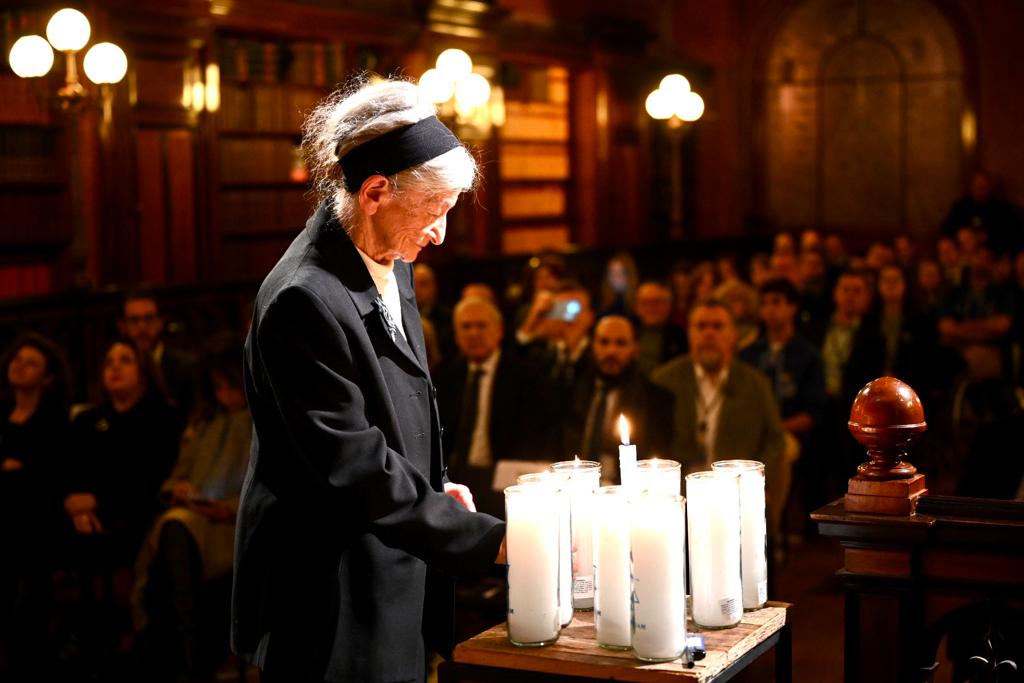
Holocaust survivor Henriette Kretz, Credit: European Commission
“We Europeans shall not forget, we must remember. We owe it to the millions of Jews who were brutally murdered by the Nazi regime. We owe it to them, to their families, the survivors, and to our future generations. We owe it to the future of democracy and the model of society that we strive for – a model that should never be taken for granted. Still, 34% of Europeans say they know just a little or that they’ve never heard of the Holocaust. If the facts are not known, Holocaust distortion can be left unchallenged,” said Margaritis Schinas, European Commission Vice-President for Promoting our European Way of Life.
IHRA Chair Ambassador Ann Bernes reinforced this view saying: “We owe survivors a huge debt. Joint steps and initiatives like these are essential and welcome, cooperation built on shared values is the only way forward. Governments and political leaders took on the responsibility of ensuring the victims and survivors were never forgotten. This commitment comes in many forms, from the EU strategy on combating antisemitism and fostering Jewish life, to the Stockholm Declaration of 2000 and the 2020 IHRA Ministerial Declaration which says that we all have the responsibility to remember.”
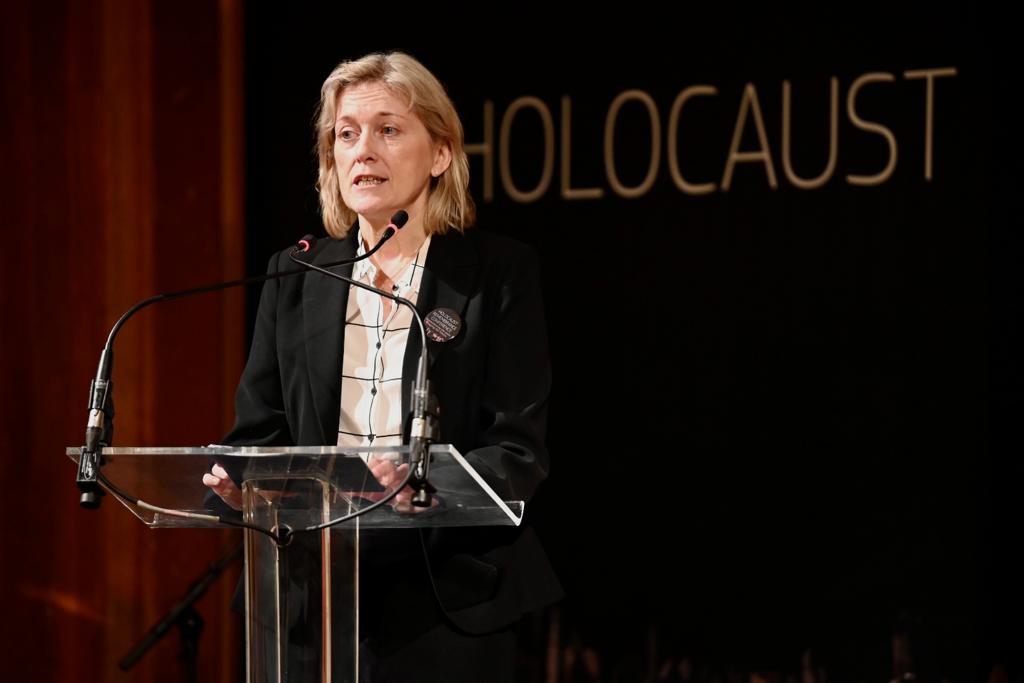
IHRA Chair Ann Bernes, Credit: European Commission
Preserving sites highlighted as critical to the future of remembrance
One way in which we can ensure the Holocaust will never be forgotten is by protecting Holocaust-related sites.. By preserving these sites, we can ensure they serve as adequate places of memory, as a physical place to honor and remember the victims and survivors. “Safeguarding is key to carrying survivors’ memories forward,” said Ambassador Bernes.
There are 44,000 sites of the Holocaust across Europe and every single one of them is facing threats, according to the contribution by Dr. Gilly Carr, Associate Professor of archaeology at the University of Cambridge, IHRA delegate, and Chair of the IHRA’s Safeguarding Sites Project, who participated in a panel discussion at the event together with Andrea Szőnyi (Zachor Foundation, IHRA), and Dr. Andreas Kahrs (what matters., WJC), and moderated by Isabelle Kumar.
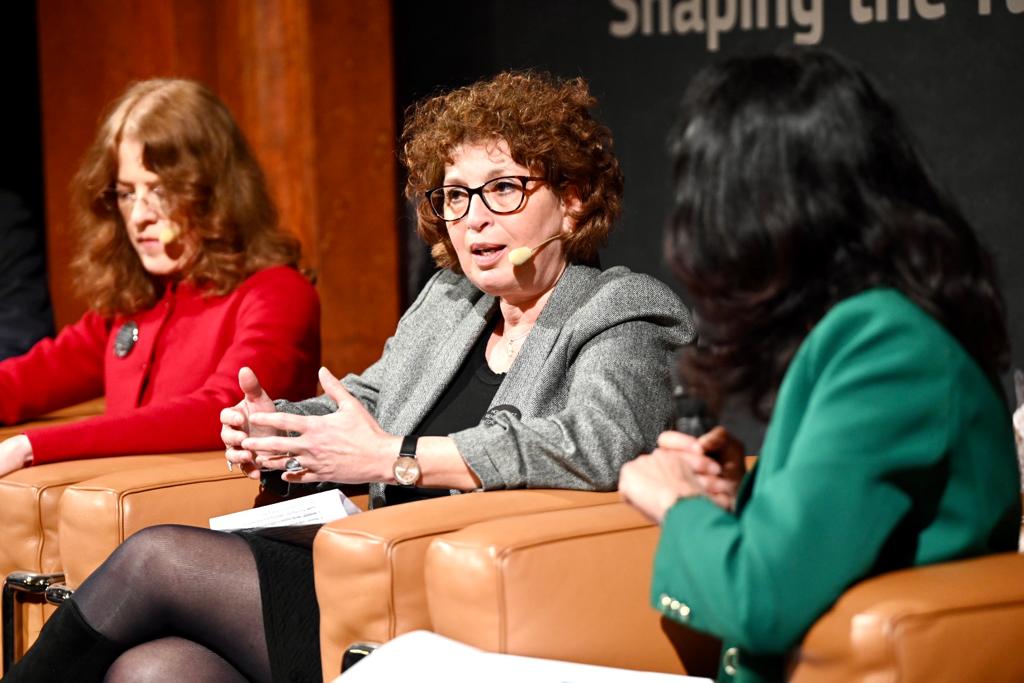
Andrea Szőnyi, Credit: European Commission
“We have identified 16 different threats: some of this is wear and tear, some sites have too many people visiting, others not enough – the pandemic has resulted in a loss of audience for some sites which means a loss of revenue for those sites relying on tourism for funding. Some of the sites are experiencing natural decay, for some climate change is the issue – at Terezin, for example, storms have caused the roof to collapse,” she said.
Fellow IHRA expert, Andrea Szőnyi, also took part in the panel, discussing the potential for a European network of sites, “Protecting sites and protecting the facts go hand in hand, one cannot exist without the other and in creating a network with this protection in mind, we can ensure that the Holocaust is never forgotten.”
The IHRA has made the safeguarding of sites a key focus of its work for many years, regularly calling upon IHRA Member Countries to fulfill their obligations to mark, protect, and research sites. For more information on our work in this area, visit Sites of the Holocaust and Roma Genocide | IHRA.
The web stream of the Holocaust Remembrance Conference is available below
Sign up to our newsletter to
receive the latest updates
By signing up to the IHRA newsletter, you agree to our Privacy Policy

